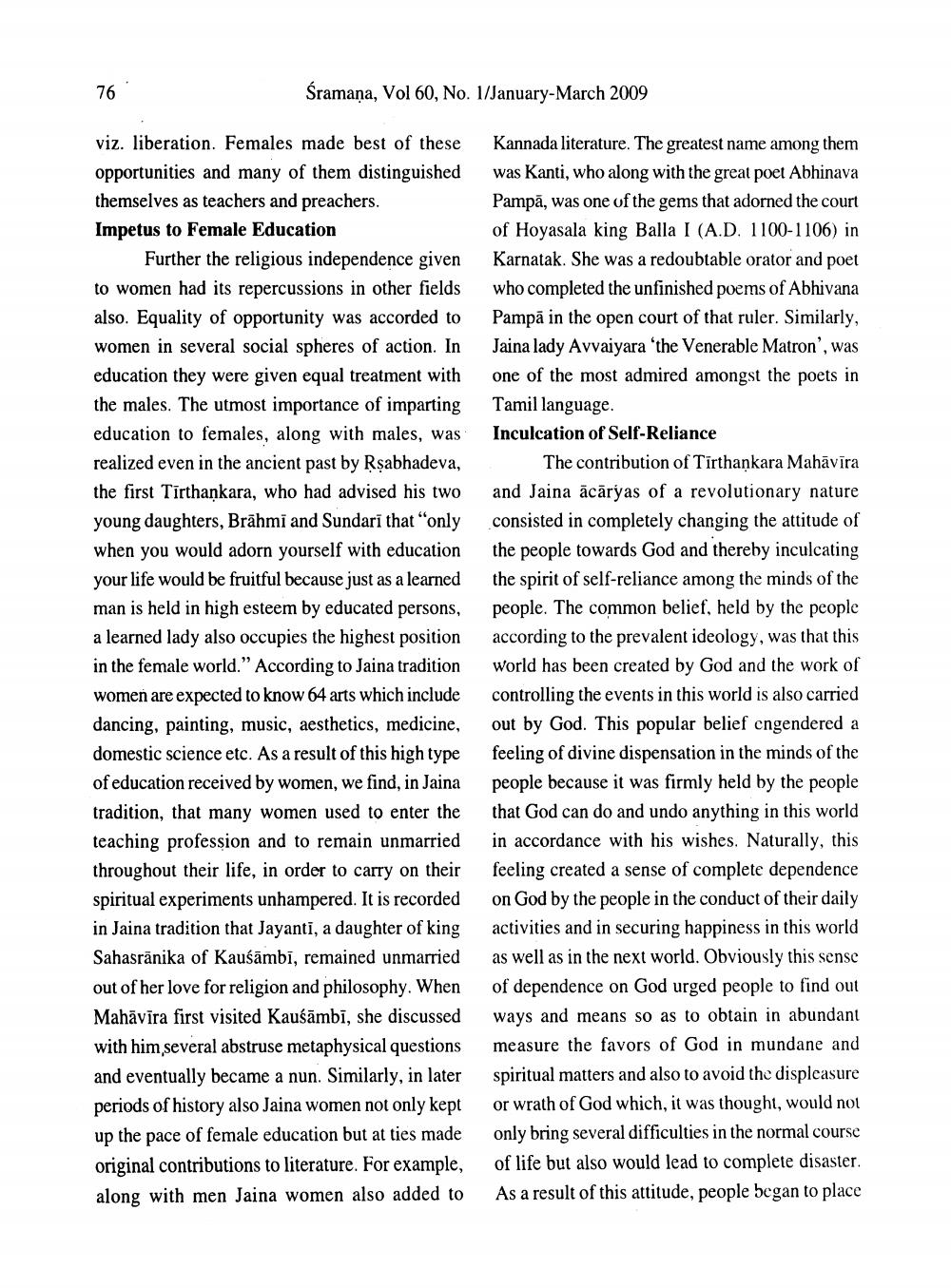________________
76
Śramaņa, Vol 60, No. 1/January-March 2009
viz. liberation. Females made best of these opportunities and many of them distinguished themselves as teachers and preachers. Impetus to Female Education
Further the religious independence given to women had its repercussions in other fields also. Equality of opportunity was accorded to women in several social spheres of action. In education they were given equal treatment with the males. The utmost importance of imparting education to females, along with males, was realized even in the ancient past by Rşabhadeva, the first Tirthankara, who had advised his two young daughters, Brāhmi and Sundarī that only when you would adorn yourself with education your life would be fruitful because just as a learned man is held in high esteem by educated persons, a learned lady also occupies the highest position in the female world." According to Jaina tradition women are expected to know 64 arts which include dancing, painting, music, aesthetics, medicine, domestic science etc. As a result of this high type of education received by women, we find, in Jaina tradition, that many women used to enter the teaching profession and to remain unmarried throughout their life, in order to carry on their spiritual experiments unhampered. It is recorded in Jaina tradition that Jayanti, a daughter of king Sahasrānika of Kausāmbī, remained unmarried out of her love for religion and philosophy. When Mahāvīra first visited Kaušāmbī, she discussed with him several abstruse metaphysical questions and eventually became a nun. Similarly, in later periods of history also Jaina women not only kept up the pace of female education but at ties made original contributions to literature. For example, along with men Jaina women also added to
Kannada literature. The greatest name among them was Kanti, who along with the great poet Abhinava Pampā, was one of the gems that adorned the court of Hoyasala king Balla I (A.D. 1100-1106) in Karnatak. She was a redoubtable orator and poet who completed the unfinished poems of Abhivana Pampā in the open court of that ruler. Similarly, Jaina lady Avvaiyara 'the Venerable Matron', was one of the most admired amongst the poets in Tamil language. Inculcation of Self-Reliance
The contribution of Tirthankara Mahāvīra and Jaina ācāryas of a revolutionary nature consisted in completely changing the attitude of the people towards God and thereby inculcating the spirit of self-reliance among the minds of the people. The common belief, held by the people according to the prevalent ideology, was that this world has been created by God and the work of controlling the events in this world is also carried out by God. This popular belief engendered a feeling of divine dispensation in the minds of the people because it was firmly held by the people that God can do and undo anything in this world in accordance with his wishes. Naturally, this feeling created a sense of complete dependence on God by the people in the conduct of their daily activities and in securing happiness in this world as well as in the next world. Obviously this sense of dependence on God urged people to find out ways and means so as to obtain in abundant measure the favors of God in mundane and spiritual matters and also to avoid the displeasure or wrath of God which, it was thought, would not only bring several difficulties in the normal course of life but also would lead to complete disaster. As a result of this attitude, people began to place




